Great idea, wrong spot
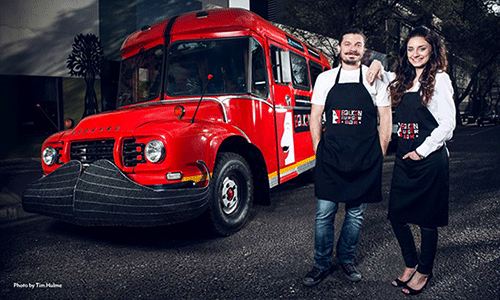
Vital stats:
- Borjan and Lidija Ivanonic are the founders of Balkan Burger.
- What started as an experiment at a farmer’s market has grown into a full-time, highly profitable and successful business.
“We bought a 1967 short-body school bus that we converted into a mobile food truck. We took it to Arts on Main in Maboneng and parked it at the entrance of the market, but that didn’t work out for us. It was a great marketing tool – people would stop and chat and want to learn more, but they’d always say they’d come back after looking around and then forget about us.”
Borjan Ivanovic is very candid about the wins and losses of growing Balkan Burger. Effectively pioneers of mobile food trucks in Joburg with no one to guide them, they spent a lot of money buying and outfitting a very cool mobile food truck that was not yet needed.
A combination of being a purchase made too soon and positioning it in a bad spot for food sales, it was a costly trip-up that only started paying itself off once they joined other markets and started landing catering jobs.
Give people what they want, not what you want

Vital Stats:
- Andrew Leeuw and Herzon Louw are the founders of Sumting Fresh.
- Starting out as a food trailer in the streets of Midrand and making negative profits at first, they’ve since grown by 9 000% and have a staff contingent of 18.
“I’m a qualified chef and opening my own restaurant was just far too expensive to consider. I figured I could bring people restaurant-quality food from a food truck but learnt hard and fast that that’s not what people wanted. They wanted street food.”
Andrew Leeuw and Herzon Louw learnt a costly lesson in their early days as street food vendors. They were serving expensive food, expensively, because that’s what Leeuw thought people wanted. The minute they pivoted and focused on selling quality street food at value-for-money prices, sales rocketed. They went from 80 portions and – R480 a day, to 120, 240 and beyond.
“We really had to take a hard look at ourselves, develop our own identity and style, and then bring it to the people. Be flexible, take criticism constructively, and don’t wait for the customers to decide who you should be.”
Estimate how long you think something will take, then double it
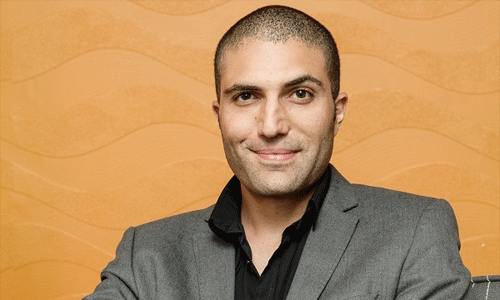
Vital Stats:
- Yossi Hasson is the co-founder of Synaq.
- Established in 2004 the firm underwent major changes that allowed the business to scale much more efficiently.
- In 2011 Dimension Data bought a 50,1% share in the business, allowing them to scale at even greater speed.
“When we made the decision to convert from a product-based business to a service-based business, we lost R1,8 million, we owed SARS half a million rand, and grossly underestimated the complexity of the change and planning for it. What we thought would take six months actually took two years.”
It was an incredibly tough time for Yossi Hasson and his business partner David Jacobson, but they maintain it was the best move they ever made.
“We recovered through management pay cuts, we froze salaries, cancelled outsourced providers, managed expenses like crazy, managed to get clients to pay upfront for a small discount, and convinced shareholders to give a little bit more money.” The major lesson they learnt about change?
“Now we always get advice and manage expectations before we start, so we have a more realistic timeline of how long something will take.”
Look before you leap
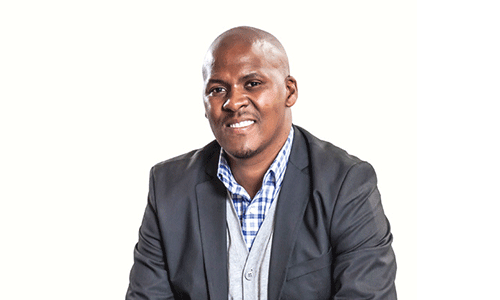
Vital Stats:
- Chris Ndongeni is the co-founder of Twin Cities Cleaning Services.
“We should have done more research about the contract cleaning business and industry before we started. We’d landed our first contract with Man Truck and Bus, and on our first day we were shocked to find that there was absolutely no cleaning equipment or detergents and the previous contractor hadn’t left anything behind. We scrambled and made expensive purchases because of that.”
Business plans belong to the last century. Gone are the days of creating 40-page, detailed documents about your business, it’s target market, competitors, finances and so on.
Today it’s about the lean canvas: Starting with a hypothesis, testing it, and quickly iterating depending on the results of your test. Even though this method requires less research, research is still very necessary.
Ensure you know what permits, certificates, and approvals are required to operate in your industry, how competitors are operating, and then figure out what you can do differently.
Do what you know
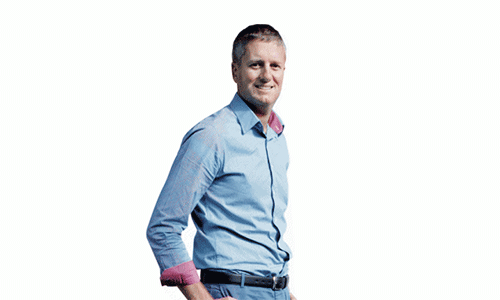
Vital stats:
- Ross Wilson is the founder of urbantonic, a Cape Town-based eventing agency.
In 2007, Ross Wilson made a business decision that would take him almost five years to recover from. Despite his background in eventing, he bought a joinery business.
“Urbantonic was a successful, growing business, but I’d been building it for almost a decade and I thought it was time to branch out. My ego was sky-high. I thought I could do anything, in any industry.”
This would turn out to be a very expensive assumption. 20 months after buying the joinery business, Wilson managed to close it down. It would take a further three and a half years to pay off the debts associated with the business.
“I kept thinking about that Top Gun quote, ‘Son, your ego’s writing cheques your body can’t cash. We built up urbantonic slowly. We offer incredible customer service because we’ve never over-extended ourselves, so our growth has been organic and self-funded. We’ve never spent what we don’t have. And most of all, we know this industry inside out. The joinery business was none of those things.”
Hire for cultural fit, not skills
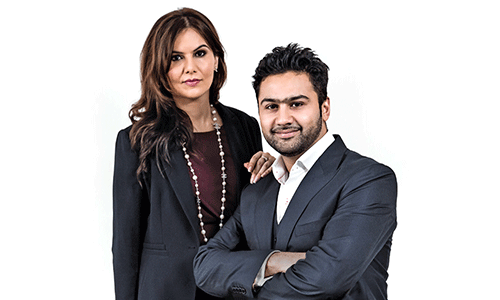
Vital stats:
- Irfan Pardesi and Hina Kassam are the founders of ACM Gold, a R350 million + gold and foreign exchange trading company.
Of course skills are important, but many entrepreneurs have learnt to their detriment that a person with the right skills who is a complete cultural mis-match with the company will bring everybody down, and even put your business at risk.
Irfan Pardesi and Hina Kassam, founders of ACM Gold, learnt this the hard way. As their start-up grew, they started building up a team. The problem came when they made the decision to bring in an experienced management team. They focused on the credibility that they thought big names would bring to the business, instead of whether those same names suited the company’s culture.
“The whole culture of our company started shifting – it was no longer what we had worked so hard to build. It took us months to rectify, and cost us a lot as well. Today we know, always hire for cultural fit. Attitude is everything. Skills can be taught, experience gained, but you’ll never change a person’s values and personality.”
Know your numbers
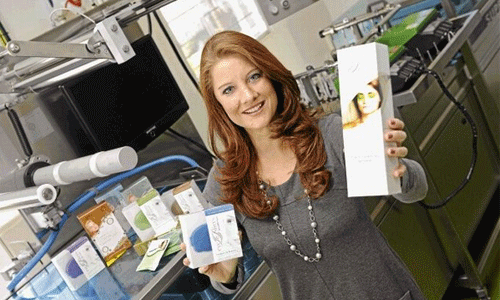
Vital stats:
- Kerryne Krause-Neufeldt is the founder of I-Slices Manufacturing, the producers of eyeslices.
When Kerryne Krause-Neufeldt launched her business, she was so focused on customers and making sales, that she neglected the inner-workings of her own company.
“I particularly wasn’t good with numbers,” she says. This was Krause-Neufeldt’s biggest lesson.
“It’s easy to abscond the numbers to the ‘finance guys’, especially if you don’t have a background in finance. I didn’t even know we weren’t paying PAYE, and ignorance is no excuse. You need a basic understanding of numbers at the very least.”
Once she realised the shambles her start-up’s finances were in, Krause-Neufeldt realised the buck needed to stop with her.
“I did accounting for dummies, followed by financial management workshops. It was time consuming, but worth it. It was the only way for me to truly be in control of my own business. Now I can spot problems in the figures at a glance.”
Everything will always take twice as long as you think it will
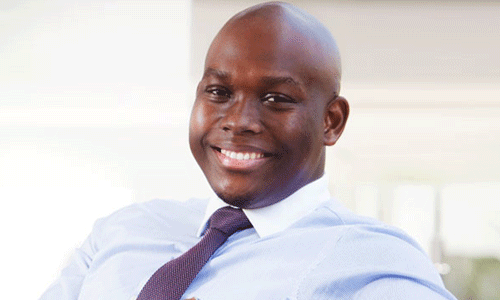
Vital stats:
- Vusi Thembekwayo is the founder of Motiv8.
- He is a Dragon on South Africa’s Dragon’s Den, and the youngest JSE director in SA.
Vusi Thembekwayo is not the first entrepreneur who learnt this lesson, nor will he be the last.
“By the time I launched my motivational speaking and strategic consulting business I had top tier experience at a local FMCG giant. I knew business. I had seed money from ring-fencing and selling the division I’d built up and ran.”
Thembekwayo certainly wasn’t green behind the ears, and yet his start-up journey ended up being very different to how he imagined it to be.
“I used that money to get set up in fancy offices with a PA. I thought that was what you needed. And then it took eight months to get my first client.”
Eight months of zero income, and expensive overheads. Thembekwayo was sleeping in his car, fending off the bank who wanted to repossess it because he wasn’t meeting the payments.
Today that business has a turnover of R140 million, but Thembekwayo will never forget his first real start-up lesson: However long you think it’s going to take to get going, triple it. And you still won’t be there.
Not everything is an opportunity, some are a waste of time
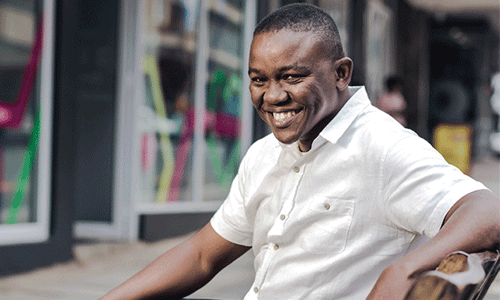
Vital stats:
- Mongezi Mtati is Founder and MD of WordStart, a word of mouth marketing firm that connects brands with influencers.
“Your time is yours to pour into the business, not to use on non-paying efforts that present themselves as opportunities,” said a mentor who was discouraging Mongezi Mtati from taking on more work for exposure. “The advice fell by the wayside,” admits Mtati. “Unfortunately, he was right.”
Mtati knows the situation well: When you’re starting out, people offer you the opportunity of ‘exposure’ in lieu of billable work and hours. Start-ups that are desperate to build up their portfolios often agree.
“The reality is that most of that exposure does not amount to billable work. It ends up being a waste of time that could have been used to either make money or spent in the business waiting for the phone to ring or drumming up sales. It could even have meant going to SARS for an hour or two, which saves you pain and punishment later in the year.
“The rule is simple: Don’t work for free,” he says. You’re there to make money, so do it.
Never treat the business’s cash like your own
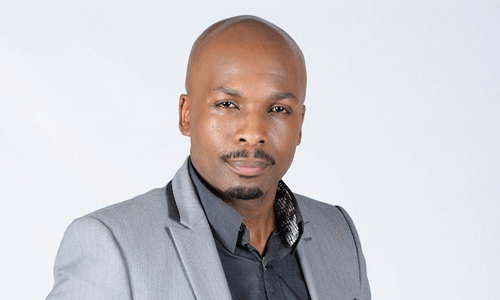
Vital stats:
- Lebo Gunguluza is the founder of the GEM Group and a Dragon on South Africa’s Dragon’s Den.
Like many young entrepreneurs, Lebo Gunguluza treated the money his start-up made as his own. After a few weeks, he realised that he needed to start saving the cash he was making in a bank account if he wanted to hire some help. It wasn’t a lesson that translated into good cash flow principles. The more the young entrepreneur made, the more he spent.
On the one hand, he was a bootstrapper, and he made his first million at the age of 27 without funding, tenders or loans. This just meant that he at least didn’t owe anyone money when he went bankrupt a year later.
“I spent my first million in one year,” he says. “Instead of using the money I was making as seed capital, I bought a GTI and partied like there was no tomorrow. It didn’t take long before I was flat broke.”
He learnt from that lesson, built himself up, and never squandered cash again, and to this day he warns other young entrepreneurs: Never treat the business’s cash like your own.







